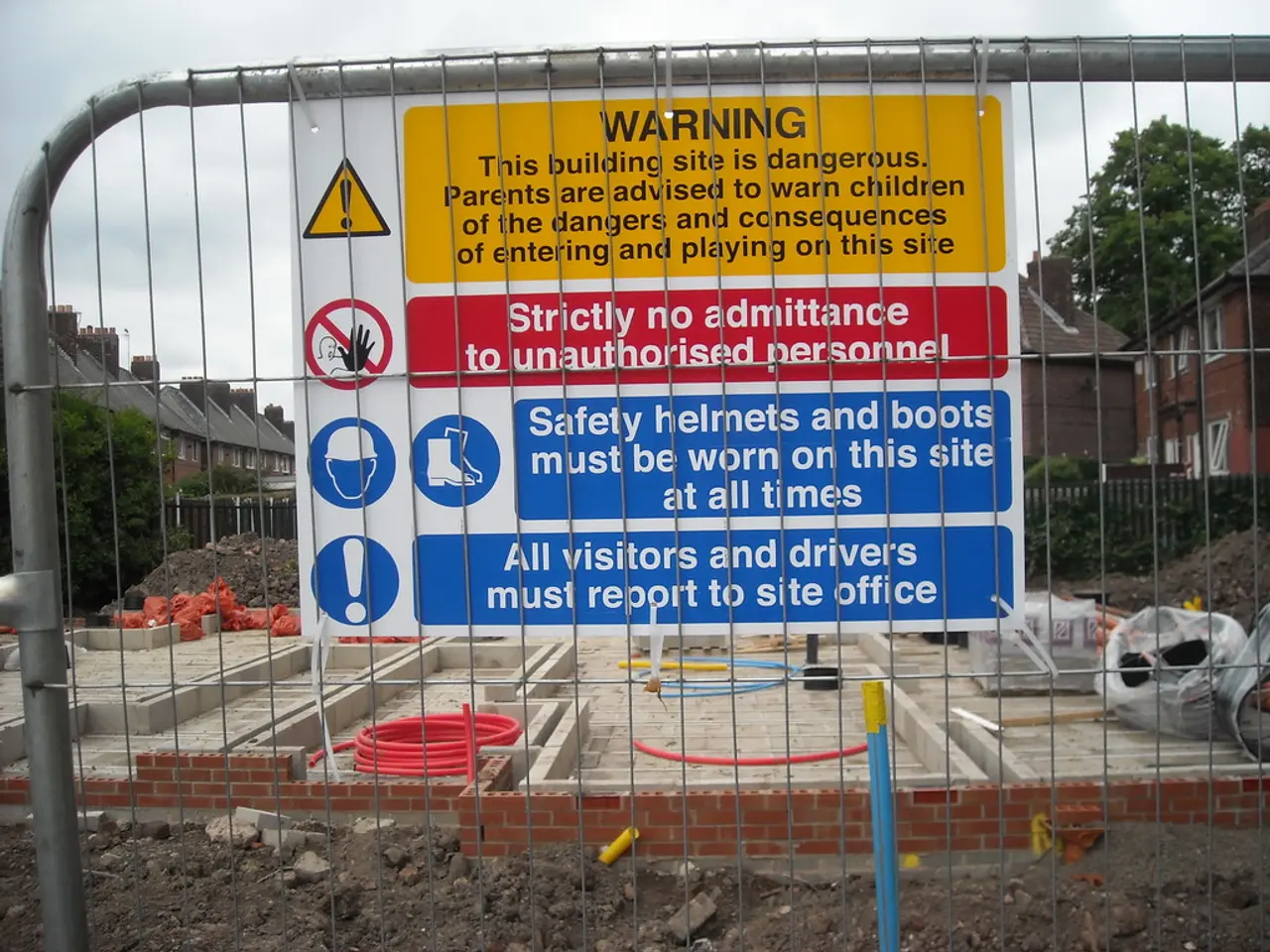Ensuring the Success of Construction Projects through Adept Risk Management Strategies
In the dynamic world of construction, unforeseen events can pose significant challenges to project timelines and costs. However, with a strategic approach to risk management, these obstacles can be effectively navigated.
Risk management in construction is a crucial component of project success, safeguarding resources and ensuring that projects stay on track. This process involves identifying, analyzing, and mitigating risks that could adversely impact project outcomes.
Contingency planning plays a key role in this strategy. It involves developing a structured approach to manage unforeseen events that may disrupt construction projects. Contingency plans often include alternative strategies to address risks if they arise, and regular reviews and updates, incorporating lessons learned from past projects.
Preventive measures in risk management include thorough planning, safety training for workers, and routine inspections to identify hazardous conditions. These measures aim to minimise the likelihood of risks occurring in the first place.
Financial risks also pose a significant threat, as unexpected expenses can strain budgets. Incorporating comprehensive insurance solutions into a construction project's risk management strategy enhances overall financial stability and security. Liability coverage is essential for contractors, protecting them from potential lawsuits related to accidents or professional negligence. Workers' compensation insurance, mandated in many jurisdictions, offers medical benefits and wage replacement to employees injured on the job.
Emerging trends in risk management are increasingly influenced by the integration of advanced technologies. The Nemetschek Group, a major German construction software company, has implemented an innovative risk management strategy focused on AI and machine learning. By acquiring Firmus AI, which specializes in AI-driven plan review and risk management in construction, they enable early error detection to ensure projects stay on schedule.
Drones are another technology that assists in identifying safety hazards and assessing site conditions more efficiently than traditional methods, enhancing risk management in construction. They also ensure site safety and compliance with legal regulations.
Building Information Modeling (BIM) aids in identifying potential issues before they arise, thereby minimising costly delays. Project management software offers features that track project progress and assess risks in real-time, reducing the likelihood of project overruns.
Compliance with local building codes, environmental regulations, and health and safety standards is critical in mitigating legal risks. Regulatory and compliance risks arise when project standards diverge from legal requirements. Contract law plays a significant role in risk management, allocating responsibilities, liabilities, and risks among parties, and specifying terms for timely completion and quality standards.
Human factors, such as miscommunication among stakeholders or lack of skilled workers, often contribute to operational inefficiencies that can jeopardise project timelines. Effective risk management strategies address these issues by fostering clear communication and investing in workforce development.
Environmental risks often include unforeseen weather conditions that can lead to project delays and increased costs. By integrating these risks into the risk management strategy, construction projects can be better prepared to weather these challenges.
In conclusion, effective risk management is essential for the success of construction projects. By adopting a proactive approach that includes preventive measures, contingency planning, and the integration of advanced technologies, construction projects can navigate the uncertainties of the industry and achieve their goals.
Read also:
- Nightly sweat episodes linked to GERD: Crucial insights explained
- Antitussives: List of Examples, Functions, Adverse Reactions, and Additional Details
- Asthma Diagnosis: Exploring FeNO Tests and Related Treatments
- Unfortunate Financial Disarray for a Family from California After an Expensive Emergency Room Visit with Their Burned Infant








